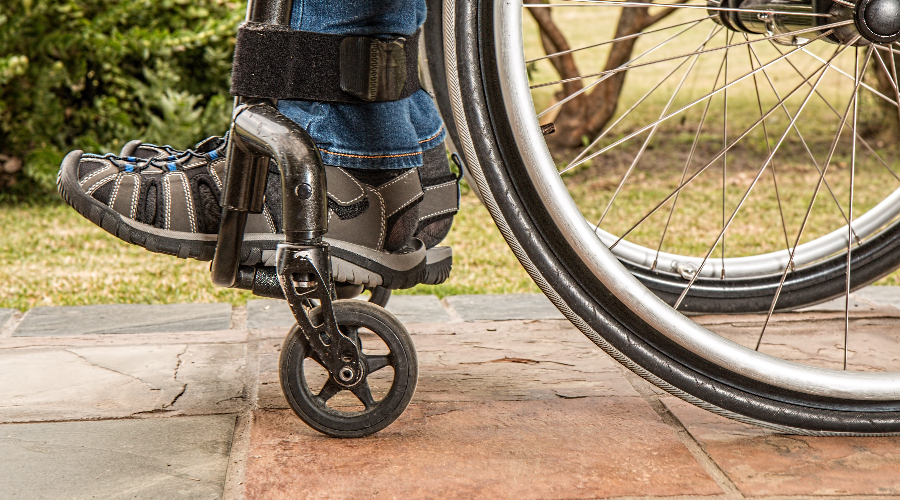
It is important to bear in mind the time limit for claiming compensation, whether you’re claiming for a road traffic accident, accident at work or any other type of accident. If the deadline is missed, you may lose the right to claim. The principle underpinning this is so that the rights of someone making a claim are balanced with fairness to the person or organisation against whom that claim is made. For example, if there was an attempt to make a claim for an accident which happened 50 years ago, one obvious difficulty, or even impossibility would be the ability to fairly investigate matters. If you are unable to settle your claim within the time limit imposed, it is strongly recommended that you raise a Court action before that deadline.
What are the time limits?
Every country will have different time limits for raising a claim for compensation. In Scotland, if you are making a claim for personal injury, then the usual time limit is three years from the date of the accident. If your claim does not involve personal injury, the usual time limit is five years.
Are there exceptions to the rule?
Yes, there are exceptions. Some examples are as follows:
- Any period where the person claiming is under the age of 16 does not count towards the time limit.
- Any period where the person claiming lacks capacity, for example, due to mental health issues, may not count towards the time limit.
- If your claim relates to an accident on an international flight, the time limit is two years from the date of disembarkation. This also applies to accidents on a ship.
- Historic abuse in Scotland. If the abuse occurred after 26 September 1964, there is no time limit for making a claim. Where abuse occurred before that date, there is a separate government scheme through which claims can be made.
- A one year time limit applies where you are claiming a breach of your human rights.
- If you do not have a specific incident date, the clock will start from the “date of knowledge”.
What is the date of knowledge and how can this arise?
In the context of personal injury, this often arises in medical negligence cases where you may not know that you have a potential claim until sometime after the treatment has occurred.
In a medical negligence claim, the date of knowledge is the point at which you knew or ought reasonably to have known that you were subject to negligent treatment.
What if the negligence occurs over a continued period of time?
This is referred to as a “continuing breach”. The time limit clock will run from the point at which the breach ended.
I’ve missed the time limit. Is there anything that I can do?
In claims for personal injury compensation, the Courts do have a discretion to allow the claim to proceed even when the Court action is not raised within the time limit. Examples where this may be considered by the Court include where the person claiming has been unwell or has suffered a bereavement.
The Court has no discretion to allow late claims in accidents on an aircraft or ship.
I had an accident whilst on holiday, what time limits apply?
If your holiday was booked as part of a package, then you may be able to sue the tour operator. In that instance, the three-year time limit still applies. If the claim relates to an accident in, for example, your hotel accommodation, you may also be able to sue the hotel direct. If you do so, the national time limit in the country where your accident occurred will apply.
Some examples of the major European destinations and their time limits to claim are as follows:
- France – 10 years
- Spain – 1 year
- Italy – 2 years for road traffic accidents and 5 years for other types of accident
- Germany – up to 30 years
If you do suffer an accident abroad, it is recommended that you take expert advice from a foreign lawyer on the appropriate time limits.
Are there time limits to claim if I have been assaulted?
This is referred to as criminal injuries compensation. If the assault happened when you were an adult (over 18), then the time limit is two years from the date of the assault. Any period when you were under 18 years old will not count towards the two-year time limit. The Criminal Injuries Compensation Authority (CICA) has discretion to accept a late claim if there are circumstances justifying this and it is still possible for the Police to properly investigate the claim.
Making a claim
There are no guarantees that the Court will exercise its discretion to allow late claims. The only certain way to ensure that your right to claim is protected is to raise Court proceedings within the time limit. Therefore, if you do think you have a possible claim to pursue, it is important to seek advice from a specialist as soon as possible.
Rachel Holt is an Associate in the Personal Injury team at Calio Claims, specialising in acting for Pursuers in claims arising from a wide variety of accidents including road traffic accidents, accidents at work, public and occupier’s liability, medical negligence and industrial disease.
You can read more about time limits with personal injury claims in Scotland in this Guide to Time Limits from Calio Claims.
Photo via Pxfuel.